Nietzsche challenged prevailing moral and religious beliefs from "summary" of The Dream of Reason by Anthony Gottlieb
In the late 19th century, Friedrich Nietzsche shook the foundations of traditional morality and religious beliefs with his radical ideas. Nietzsche's critique went beyond mere skepticism; he sought to dismantle the very pillars upon which Western civilization had built its moral framework for centuries. He argued that the prevailing moral and religious values were nothing more than arbitrary constructs designed to control and suppress individual freedom. Nietzsche's philosophy was a direct challenge to the prevailing Christian beliefs of his time. He famously declared that "God is dead," by which he meant that the traditional Christian notion of a divine, moral authority no longer held sway over humanity. In the absence of this authority, Nietzsche argued that individuals were free to create their own values and meanings in a world devoid of inherent purpose or meaning. One of Nietzsche's most controversial ideas was his concept of the "will to power." According to Nietzsche, all human actions were motivated by a desire for power and domination. This radical notion flew in the face of traditional Christian ethics, which emphasized humility, meekness, and selflessness. Nietzsche believed that embracing one's will to power was essential for achieving personal fulfillment and self-actualization. Nietzsche's rejection of traditional morality and religion was a direct challenge to the prevailing beliefs of his time. He called for a reevaluation of all values and a rejection of the herd mentality that he believed had stifled human progress and individual creativity. Nietzsche's ideas were not only provocative but also profoundly influential, laying the groundwork for existentialism, postmodernism, and other intellectual movements that would shape the 20th century and beyond.- Nietzsche's critique of prevailing moral and religious beliefs was a radical and revolutionary challenge to the status quo. By questioning the foundations of Western morality and religion, Nietzsche paved the way for a new era of philosophical inquiry and reflection. His ideas continue to provoke debate and discussion to this day, challenging us to rethink our assumptions and values in a world that is constantly changing and evolving.
Similar Posts

Human nature is characterized by a blend of rationality and instinctual drives
Human nature is a complex interplay between rationality and instinctual drives. Rationality, the ability to reason and make log...

The will to power can be a source of empowerment and liberation
The idea that the will to power can serve as a means of empowerment and liberation is a central theme in Nietzsche's work. Acco...

Human relationships are fraught with power dynamics and conflicts
In the intricate web of human relationships, there exists a constant undercurrent of power dynamics and conflicts. These dynami...

The concept of "good" and "evil" is fluid and subject to interpretation
In the realm of morality, one must navigate through a landscape that is ever-changing and open to individual interpretation. Wh...

